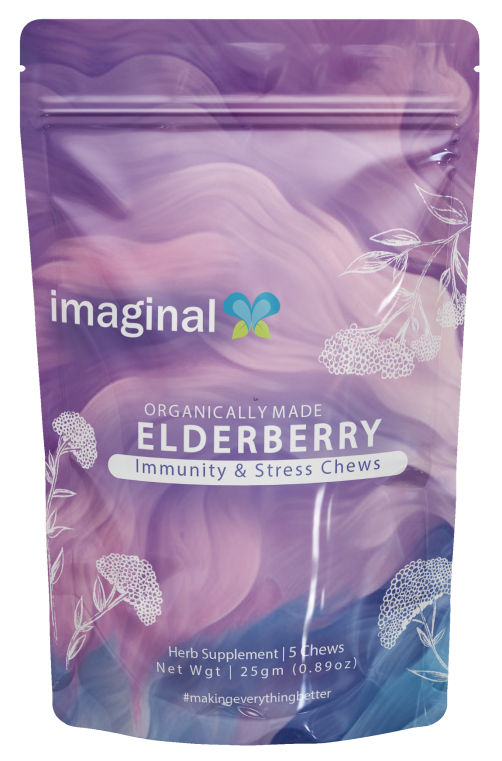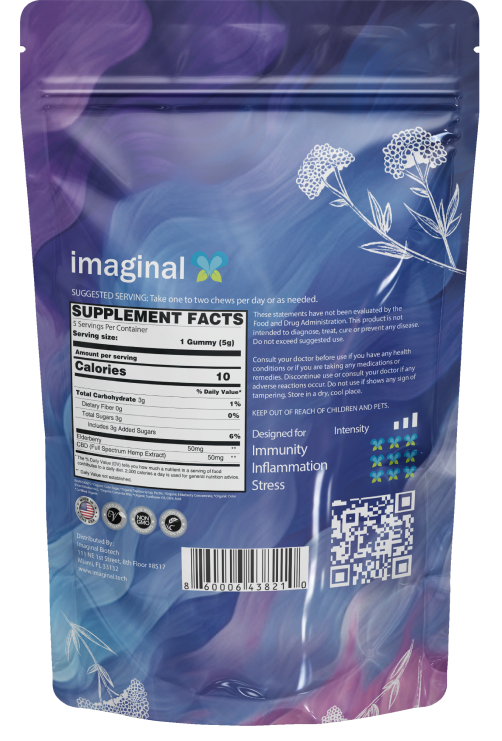Curcumin and The Brain: What you need to know
This is the fourth article in our curcumin series. You can read the other items in this series by clicking here.
------------------------------------------------------------------------------------------------------------------
How well do you know your spices? Are you a spice master like Lior Lev Sercarz, the self-proclaimed "King of Spices”? Or are you a complete novice still trying to figure out the difference between cumin and curcumin? Regardless of where you stand in the spice hierarchy, there are some spices that you must have heard off, and one of them is turmeric.
If you’re unfamiliar with turmeric, it’s the spice that gives food a vibrant golden color, but that's not all it’s known for.

Golden turmeric rice (Don’t salivate too much)
Turmeric is also popular because its principal active agent, curcumin, has great therapeutic potential. (Remember this, it's essential.)
Curcumin is the compound responsible for turmeric’s golden yellow color, and according to research, it’s great for the heart, the brain, the immune system, and the joints. Scientists are particularly excited about its anti-inflammatory, anti-oxidant, and cholesterol-lowering properties.
In previous articles, we looked at curcumin and the immune system and the heart, so in this article, we'll focus on the brain. How does curcumin interact with the brain? What does the research say?
Let’s dive in.
The brain
Before we look at how curcumin and the brain interact, we need to understand a thing or two about the brain.

The human brain is a large complex organ that’s housed in the skull. It’s made up of millions of nerves that communicate through synapses. Our brains perform a wide range of functions, such as:
- Interpreting sensory information
- Releasing hormones
- Controlling our breathing rates
- Processing and acquiring language
And this is just the tip of the iceberg; the brain plays a role in every primary body system. That’s why it’s regarded as the most crucial organ in the body.
Fun brain fact: Several cannabinoid receptors, part of the endocannabinoid system, are located in the brain. Phytocannabinoids such as THC and CBD work through these receptors to produce an effect on the body.
Parts of the brain
Our brains are divided into three main parts, the cerebrum, the cerebellum, and the brain stem. Let's look at each of them.

The cerebrum is the largest section of the brain, and it’s the one that most people are familiar with. It is divided into the left and right hemispheres, which are connected by a bundle of fibers known as the corpus callosum. These fibers allow the right and left hemispheres to communicate.
The cerebrum performs a wide array of functions such as: initiating and coordinating movement, understanding speech, learning and problem-solving
The cerebellum, aka the back of the brain, is aptly located at the back of the head. The cerebellum plays a significant role in coordinating voluntary muscle movement and maintaining the body’s equilibrium and posture. It might also play a role in cognitive functions, such as emotional control, language, and attention.
The brain stem is a small section of the brain, accounting for roughly 2.6% of the brain’s weight. But don’t let its small size fool you, the brain stem is a vital organ as it’s involved in regulating the breathing and heart rate. It is also involved in the movement of the mouth and eyes as well as involuntary muscle movement.
Brain diseases
The brain is a remarkable organ, but at the end of the day, it’s an organ like any other. And organs are susceptible to diseases.
Diseases that affect the brain are referred to as neurological disorders, and according to the University of California, San Francisco, there are more than 600 of them. And while 600 might not sound like a massive number, picture this: according to research, in 2011, nearly 100 million Americans dealt with a neurological disease.
Some of the most common neurological diseases include:
- Alzheimer’s- Alzheimer’s is a disorder that makes brain cells degenerate (waste away) and die. According to the Alzheimer’s Association, in 2020, 5.8 million Americans aged 65 and older live with Alzheimer's.
- Stroke - A stroke happens when the brain’s blood supply is reduced or interrupted. This prevents brain cells from getting sufficient nutrients and oxygen causing them to die. Data indicate that in the US, strokes affect roughly 6.8 million people above the age of 20.
- Multiple Sclerosis (MS) - MS is a complex disease whereby the body’s immune system attacks and destroys myelin. Myelin is a protective layer made up of proteins and fat that covers the nerve fibers. It allows electrical impulses (how the brain communicates) to transmit quickly and efficiently along the nerve cells. When this layer is destroyed, our brains have a hard time communicating with the rest of our bodies. According to the National Multiple Sclerosis Society, more than 2.3 million Americans have been diagnosed with MS.
- Parkinson’s disease - Parkinson’s disease is a condition that affects the central nervous system. It affects movement and often manifests as tremors, stiffness, or slowing of movement. Every year, 60,000 Americans are diagnosed with Parkinson’s disease, according to information from the Parkinson’s Foundation.
Curcumin and the brain
Now that we know more about the brain let's look at how curcumin affects it.

Earlier in the article, I asked you to remember a fact about curcumin. Here’s a refresher in case you’ve forgotten: curcumin has excellent therapeutic potential because of its anti-inflammatory, anti-oxidant, and cholesterol-lowering properties.
And it's this therapeutic potential that got scientists curious about whether curcumin could be beneficial for the brain.
But before we dive into that, I have to answer one question: What do we mean when we say that a substance has therapeutic potential? A substance with therapeutic potential might affect the course of a disease and improve an individual’s health.
So curcumin might affect the course of a disease and improve a person’s health (in this case, brain health.). But is there research to support this?
Let’s find out.
Curcumin and Alzheimer’s
The first condition we’ll look at is Alzheimer’s. As we saw earlier, Alzheimer’s is a pretty common condition that causes brain cells to waste away and die. A person with Alzheimer’s suffers continuous cognitive decline affecting their ability to function independently.
Scientists are still working to figure out the exact cause of Alzheimer’s; however, there is mounting evidence suggesting that inflammation plays a significant role in its development. A team led by Jefferson Kinney wrote one of the leading papers on this subject.
Curcumin's anti-inflammatory properties are well-documented, and researchers were curious whether these properties could benefit Alzheimer’s patients.
In a paper published in the Annals of the Indian Academy of Neurology, Shrikant Mishra and Kalpana Palanivelu set out to answer that question. They found that curcumin inhibits the production of chemicals that trigger inflammation. This, as well as curcumin’s anti-oxidant properties, indicate that it might be a viable treatment for Alzheimer’s. However, the researchers believe that more large-scale human trials need to be carried out before we can conclusively say that curcumin is useful for Alzheimer's patients.
But this isn’t the only research on the subject.

Curcumin to diagnose Alzheimer’s
In another paper, written by Min Chen et al., the researchers looked at the potential of using curcumin to diagnose Alzheimer’s.
One of the biggest challenges in treating Alzheimer’s is that detecting it in the early or asymptomatic stages is nearly impossible. By the time it's discovered, a patient is already exhibiting symptoms. Experts believe that early detection could improve outcomes for patients.
This is where curcumin comes in.
According to Min Chen et al., curcumin has a special structure and exhibits unique photochemical and photophysical properties. It also allows curcumin to bind to Aβ plaques found in the brains of people with Alzheimer’s.
When it binds to these plaques, it emits a strong fluorescence signal, which researchers believe can be used to diagnose Alzheimer's. Studies are currently ongoing on how to use these unique properties alongside existing imaging techniques such as MRIs and PETs to diagnose Alzheimer’s.
Curcumin and strokes
According to several research papers, curcumin might play a role in stroke prevention.
Bruce Ovbiagele, MD, wrote one of these papers.
In this paper, he identified three properties of curcumin that could help prevent strokes: anti-inflammatory, antilipemic, and antiaggregant. These properties make curcumin similar to several treatments that have been used to prevent strokes successfully.
Dr. Ovbiagele suggested that more research needs to be carried out to fully understand curcumin's role in preventing strokes.
Curcumin and multiple sclerosis (MS)
Curcumin has bright prospects for the treatment of multiple sclerosis. Those aren’t my words but the title of a research paper authored by a team led by Lin Xie. The researchers were investigating whether curcumin might be useful in the treatment of multiple sclerosis.
They concluded that curcumin might play a role in treating MS as it inhibited neuroinflammation, one of the key pathological components of the disease.

Curcumin inhibits neuroinflammation by inhibiting proinflammatory cytokines and chemokines. (These are chemicals naturally produced by our bodies.)
They believed that this research is promising, but they insisted that more studies are needed to develop better curcumin-based medication for MS.
Final thoughts
Whew! That was a ride! If you got lost anywhere along the way, don't worry, here are the most important facts:
- Curcumin has anti-inflammatory, anti-oxidant, and cholesterol-lowering properties. This is why researchers think it has therapeutic potential.
- Inflammation and oxidative damage play a significant part in the development of diseases, particularly those that affect the brain.
- Researchers are trying to figure out whether curcumin’s beneficial properties can be harnessed to treat a wide array of neurological diseases.
- The research we have at the moment is promising, but more studies need to be done to understand curcumin's impact on the brain fully.
Curcumin has great potential, and it feels like we are only scratching the surface.
If you want to try curcumin, pass by our shop and get yourself a bottle of our CBD Softgels with curcumin. With these softgels, you get all the benefits of curcumin and the benefits of CBD.
Thank you for reading this, and we hope you have a great day.




